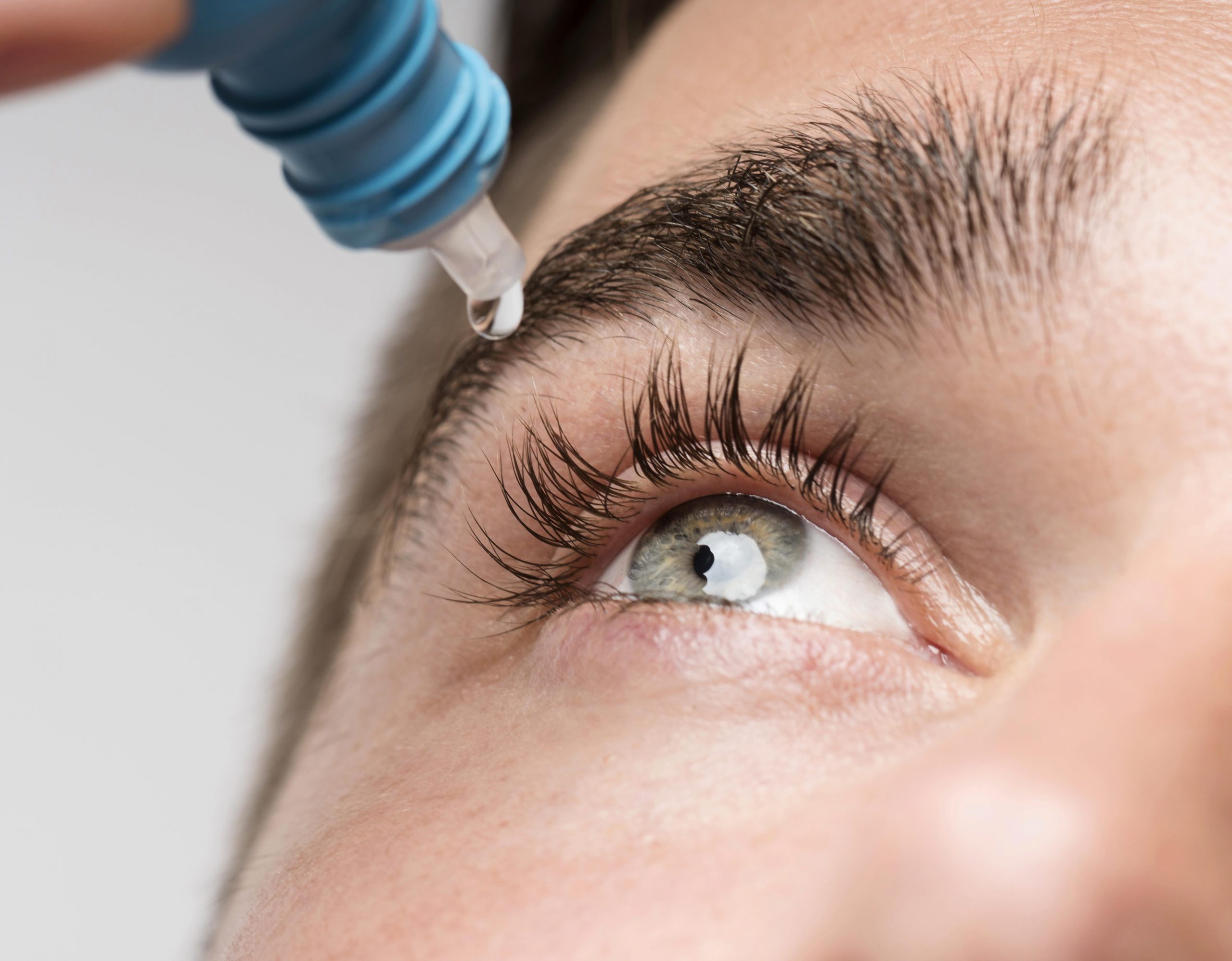

A new study reveals that eye drops produced by Columbia University researchers may be a more effective–and more comfortable–therapy for a common eye illness that is presently treated with injections into the eye.
Retinal vein occlusion (RVO), an eye condition that affects up to 2% of adults over the age of 40, arises when a vein in the retina becomes blocked, causing edema, inflammation, retinal damage, and vision loss.
The standard treatment involves injecting a vascular endothelial growth factor inhibitor (anti-VEGF) into the eye to minimize edema. Although the procedure can restore eyesight, patients who have extensive retinal damage owing to insufficient blood flow frequently have poor outcomes.
“Anti-VEGF therapy has helped a lot of people with RVO, but the fear factor—having to get a needle in the eye—causes many people to delay treatment, which can lead to retinal damage,” says Carol M. Troy, MD, PhD, professor of pathology & cell biology and of neurology at Columbia University Vagelos College of Physicians and Surgeons. “There’s an opportunity to help more people with this disease that is a leading cause of blindness worldwide.”
An experimental eye drop treatment was twice as successful as normal injectable therapy at lowering swelling and increasing blood flow within the retina of mice with RVO, according to the study. The eye drops also prevented the deterioration of neurons (photoreceptors) in the retina and preserved visual function over time, whereas the usual injections had no effect on either.
The ‘death enzyme’ is the target of eye drops
The eye drops contain an investigational medication that inhibits caspase-9, an enzyme that causes cell death that Troy’s group discovered to be overactive in RVO-damaged blood vessels.
“We think the eye drops improve the health of blood vessels in the retina, which then decreases the toxic signaling that damages the retina’s neurons and leads to vision loss,” says Maria I. Avrutsky, PhD, the study’s first author who conducted the research as a postdoc in the Troy lab.
Future research will focus on developing the eye drops for human clinical trials and identifying new therapeutic targets.
“Finding the root cause of RVO is the holy grail, but if we can at least provide better symptomatic relief that doesn’t distress patients, it would be a really good start,” Troy says.
more recommended stories
 High-Fat Diets Cause Damage to Metabolic Health
High-Fat Diets Cause Damage to Metabolic HealthKey Points Takeaways High-fat and ketogenic.
 Acute Ischemic Stroke: New Evidence for Neuroprotection
Acute Ischemic Stroke: New Evidence for NeuroprotectionKey Highlights A Phase III clinical.
 Statins Rarely Cause Side Effects, Large Trials Show
Statins Rarely Cause Side Effects, Large Trials ShowKey Points at a Glance Large.
 Anxiety Reduction and Emotional Support on Social Media
Anxiety Reduction and Emotional Support on Social MediaKey Summary Anxiety commonly begins in.
 Liquid Biopsy Measures Epigenetic Instability in Cancer
Liquid Biopsy Measures Epigenetic Instability in CancerKey Takeaways Johns Hopkins researchers developed.
 Human Antibody Drug Response Prediction Gets an Upgrade
Human Antibody Drug Response Prediction Gets an UpgradeKey Takeaways A new humanized antibody.
 Pancreatic Cancer Research: Triple-Drug Therapy Success
Pancreatic Cancer Research: Triple-Drug Therapy SuccessKey Summary Spanish researchers report complete.
 Immune Cell Epigenome Links Genetics and Life Experience
Immune Cell Epigenome Links Genetics and Life ExperienceKey Takeaway Summary Immune cell responses.
 Dietary Melatonin Linked to Depression Risk: New Study
Dietary Melatonin Linked to Depression Risk: New StudyKey Summary Cross-sectional analysis of 8,320.
 Chronic Pain Linked to CGIC Brain Circuit, Study Finds
Chronic Pain Linked to CGIC Brain Circuit, Study FindsKey Takeaways University of Colorado Boulder.

Leave a Comment